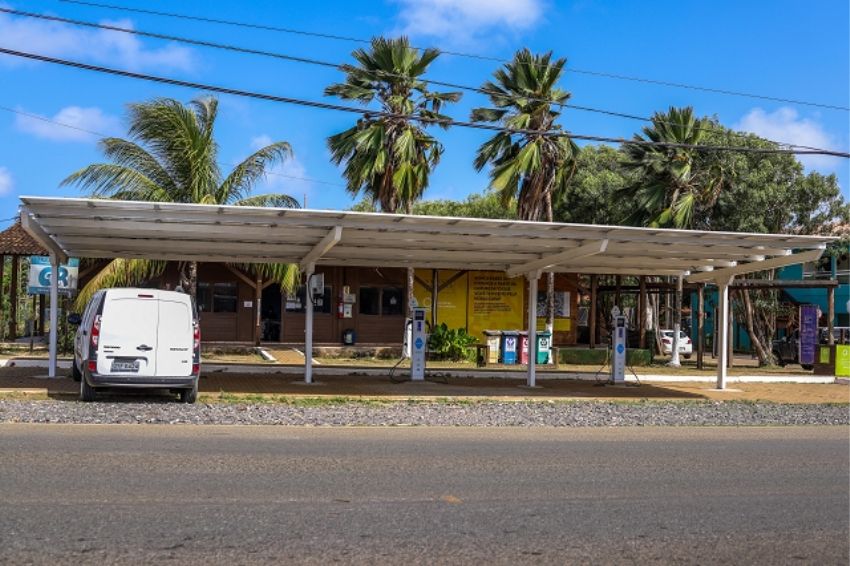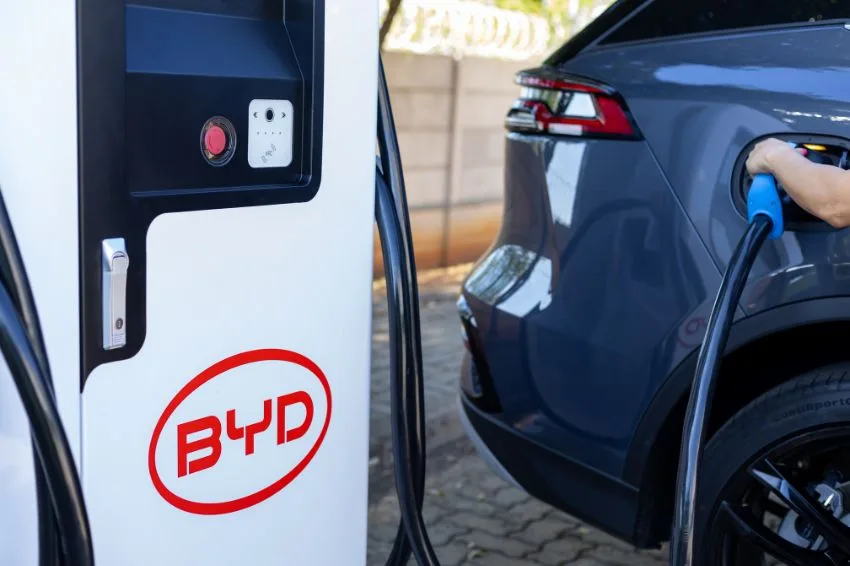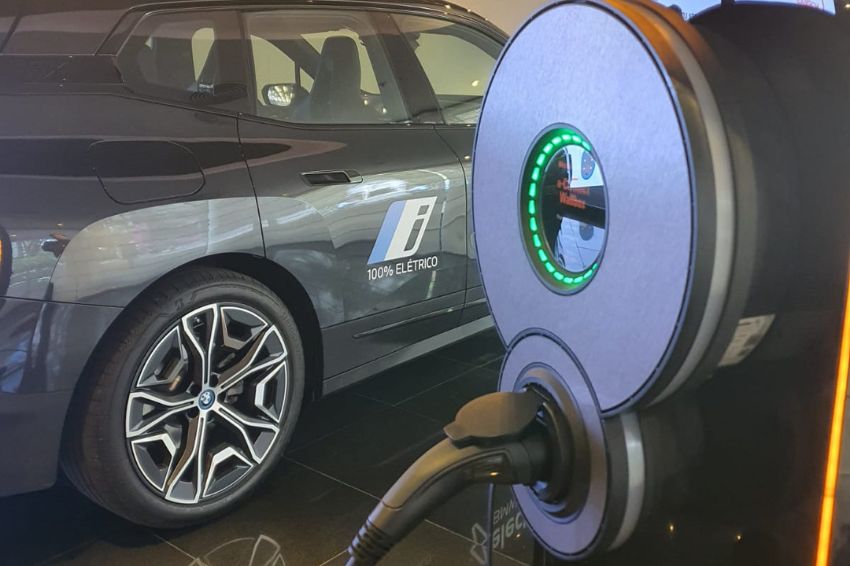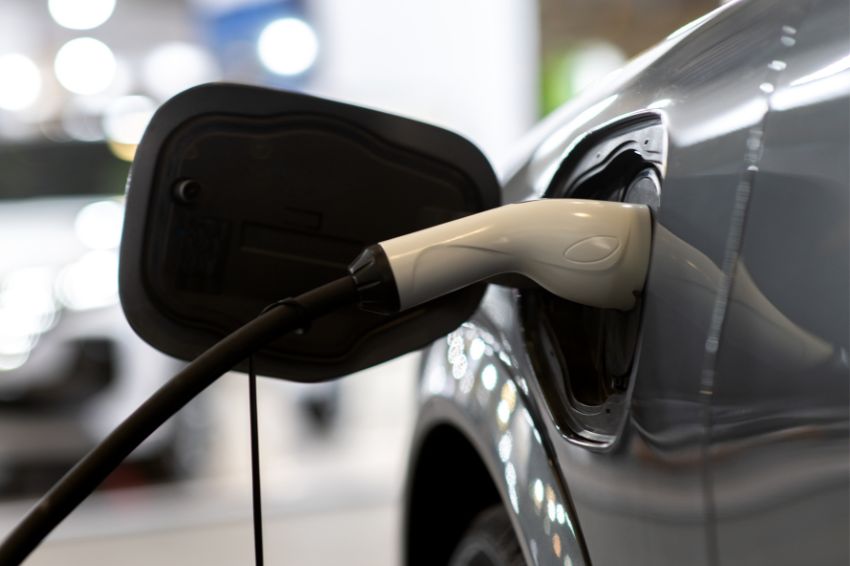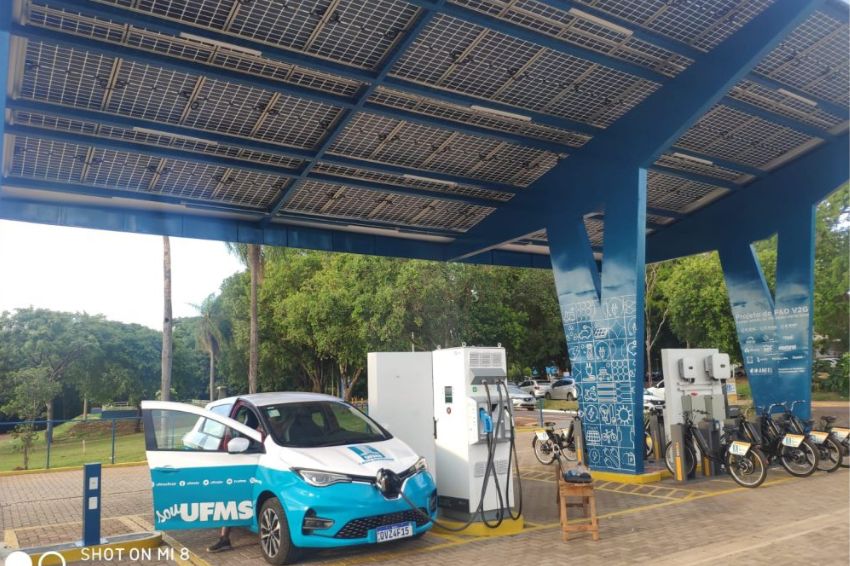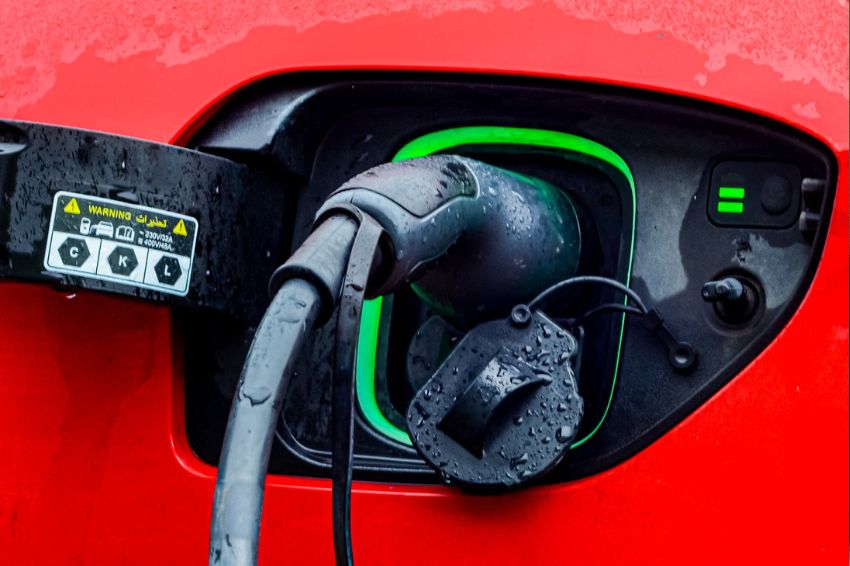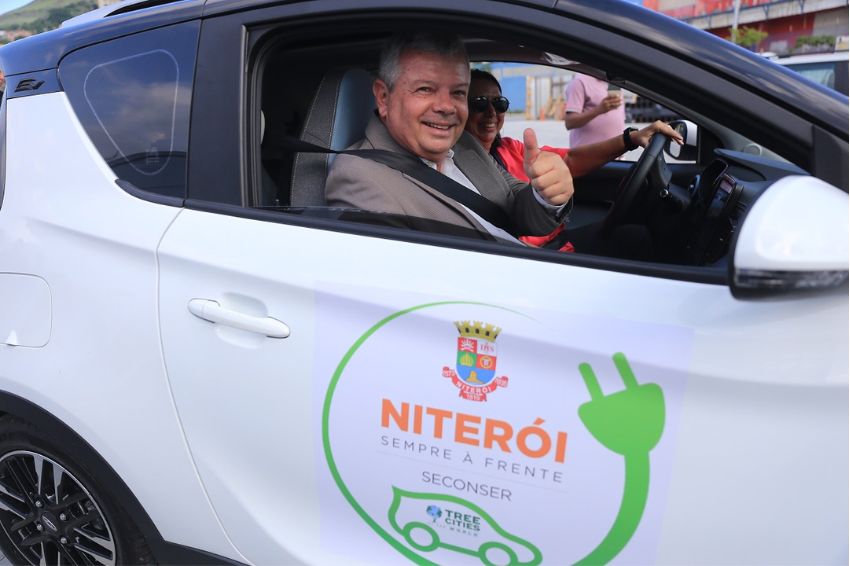The Fernando de Noronha Administration put into operation the first public recycling station for charging electric cars. The novelty is the result of a partnership with the companies Renault do Brasil, WEG and Polo. The new space, located in the Floresta Nova neighborhood, has the capacity to serve up to six vehicles at the same time, and the cars are recharged using solar energy, through a photovoltaic system installed on its roof (carport). In total, the six solar garages have the capacity to generate up to 26 MWh per year, enough to cover the electrical consumption of all zero-emission vehicles that circulate on the island. This energy generated is equivalent to 180 thousand kilometers driven without the generation of carbon dioxide (CO₂), which should avoid the burning of around 20 thousand liters of fossil fuel.
Logistics for installation
To reach the island, all materials were unloaded in Recife (PE) and then transported by ferry to the archipelago. The technology had to be adapted and hot-dip galvanized to protect it from wind and rain. The entities' initial idea was to install the equipment in March last year, but, due to the pandemic and the closure of the island to tourists, it was necessary to postpone the delivery of the project. The operation of the recycling station is part of another stage of the Noronha Carbono Zero program which, among other actions, prohibits the entry of combustion-powered vehicles into the archipelago from 2022, aiming to reduce CO₂ emissions. In addition to the recently opened space, other projects are awaiting approval to begin operating. “With the delivery of the eco-station to the population, we continue the State Government's project to reduce air pollution in Noronha, using environmentally correct forms of supply, with renewable energy and cars that do not harm the environment. We are looking to the future, to the next generations, and making the island an example to be followed”, explains Guilherme Rocha, administrator of Fernando de Noronha.
Environmental responsibility and urban mobility
Currently, the archipelago has a total of 30 electric cars in circulation. The first arrived in 2019, during the launch of the Noronha Carbono Zero program. On the occasion, Renault Brasil donated six cars, of three models, for official use by the District Administration. Since then, local management has taken steps to gradually change the vehicle fleet. Located 540 kilometers from Recife, Fernando de Noronha is a tourist destination that receives thousands of visitors per year. Around 70% of the territory belongs to the National Marine Park, considered a Natural Heritage Site by UNESCO (United Nations Educational, Scientific and Cultural Organization). The other 30% are Environmental Protection Areas (APA). The carbon reduction initiatives on the island were created precisely to protect the local fauna and flora and reconcile human occupation with environmental protection.
Noronha Zero Carbon
In January last year, Governor Paulo Câmara sanctioned Decree-Law No. 16,810/20, which regulates the entry and circulation of combustion cars on the island. With the measure, no cars powered by gasoline, alcohol and diesel oil will enter the island from 2022 onwards. Vehicles in Noronha will be able to continue traveling until 2030, when traffic will be definitively restricted to electric vehicles only. The Noronha Carbono Zero program also includes other sustainability actions and reduction of Greenhouse Gas (GHG) emissions, substances that cause global warming. A Technical Cooperation Agreement was also signed in 2020 between the government and Celpe (Companhia Energética de Pernambuco), for the activation of two new photovoltaic solar battery modules, reinforcing the storage system on the island and doubling the use of clean energy in peak times.


